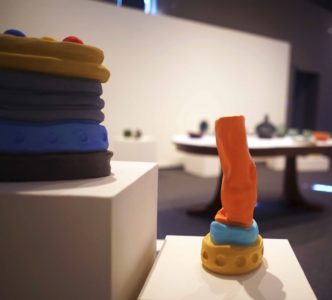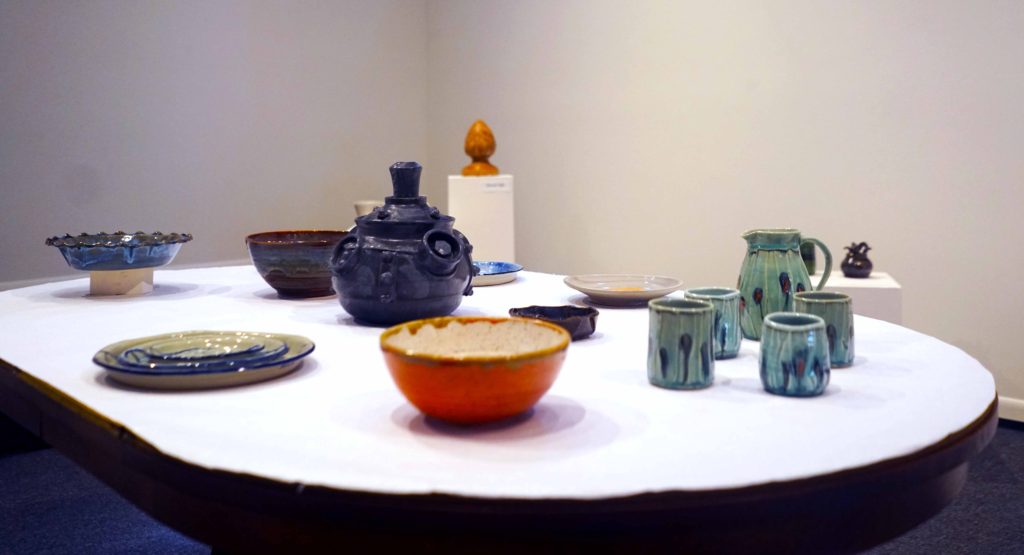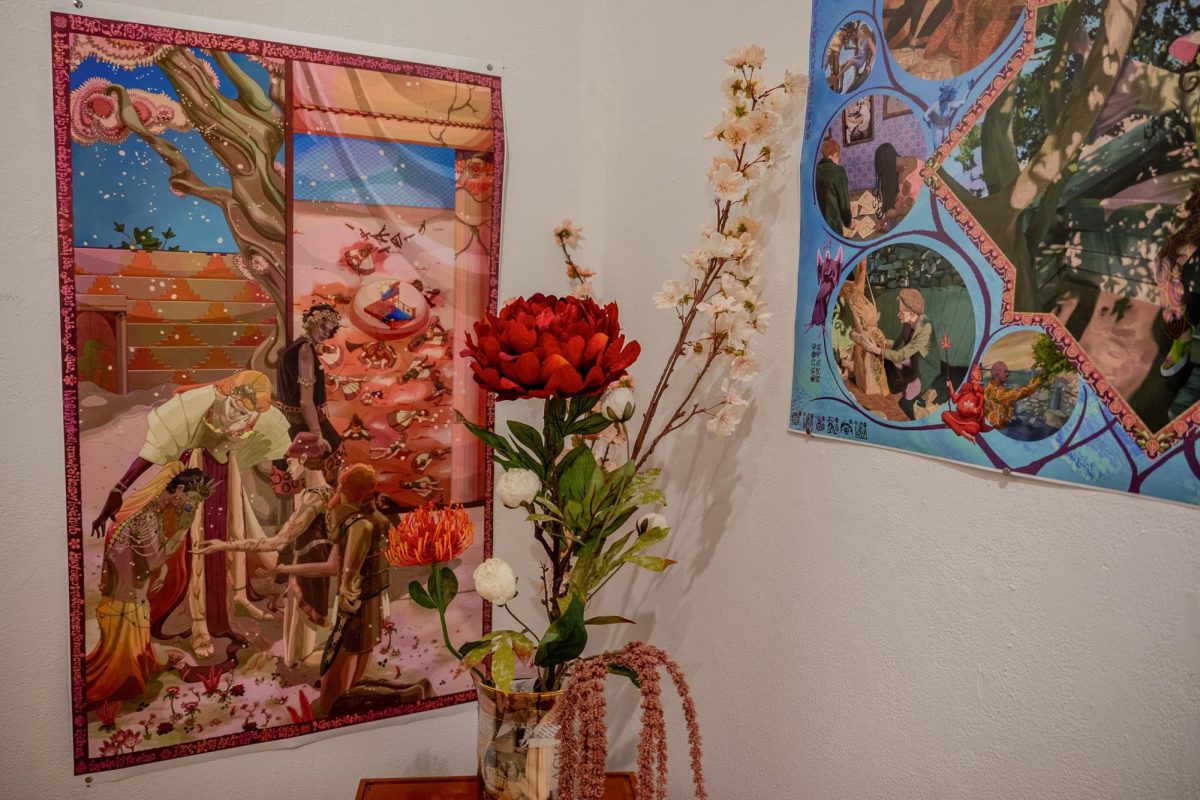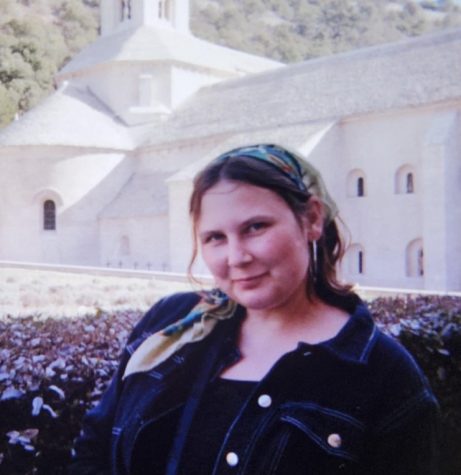The current Open Studio Ceramics show “Art and the Everyday” features the work of the Grinnell Area Arts Council, whose members include artists and students from the Stew Makerspace.
Professor Kelly Maynard, history, as well as Cecilia Knight and Jane Mertens, who teach classes and oversee the Ceramics Center, curated the exhibition, offering any current or former member the opportunity to include their work.
“The three of us curating could think about ‘What would be on a coffee table? What could be on a sideboard? What is whimsical? What [relates to] plant life?’ And then we could start to curate. So there was no quality control. That was the whole point,” Maynard explained.
The pieces are arranged in the gallery in groups according to their function. On a display table labeled “Kitchen” sits closed-topped jars for condiments and delicate, multi-colored cups. A dining room table stands in the center of the exhibition with various artists’ plates and serving bowls set for a large gathering.
Ceramics is a lot about failing, things going wrong and cracking and chipping, and that’s how it works – Kelly Maynard, Curator of “Art and the Everyday”
Maynard explained the loosely regulated arrangement of the pieces, which sit in conversation with and in the context of one another.
“On its own, craft work is largely about skill and practice, and the learning that happens in your muscles, and we wanted to celebrate that,” said Maynard.

The 13 members featured, among whom are Maynard, Knight and Mertens themselves, also include community members, Grinnell College faculty and a student at the College. All of them at one point have used the Ceramics Center studio, located in the Stew Makerspace across the street from the Arts Center.
“Ceramics is a lot about failing, things going wrong and cracking and chipping, and that’s how it works,” said Maynard.
The Grinnell Area Arts Council oversees the Stew Makerspace. In 2016, Professor Montgomery Roper, anthropology, along with student contribution, established the Makerspace with the idea that people could “have a space to try things and fail,” as Maynard explained. This partnership that Roper helped develop between the Arts Center and the College emerged in the last five years.
The studios are a shared space that address the questions being asked at the time. “How do we get students off campus and [bring] townspeople to campus and how do we build relationships?” Maynard said. “They’re trying to tap into local skill and knowledge and get folks to help train students.”
There is now a formal relationship between the College and the Makerspace, and for-credit classes will be available at the Makerspace beginning in the spring semester.
“Art and the Everyday” opened on Sep. 2 and will run through Sep. 25.




























































